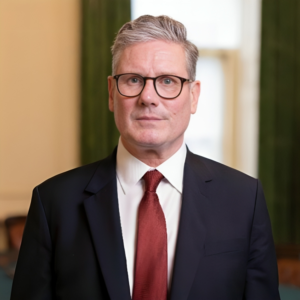
COP28: Significance & Importance
Talking about the important things at the COP28 meeting in Dubai

COP28 is happening when the world needs to do more about climate change. We’re seeing more heat records, and there are lots of extreme weather events like fires, floods, and storms.
The UN’s report says we have to work harder to meet the Paris Agreement goals. COP28 is a big chance to make the world sustainable.
What is a COP?
The United Nations (UN) holds a yearly meeting about climate change called the ‘Conference of the Parties’ or ‘COP.’ This event brings together leaders, ministers, and negotiators from around the world to figure out how to deal with climate change.
It includes governments that have agreed to international climate agreements like the UN Framework Convention on Climate Change, the Kyoto Protocol, or the Paris Agreement.
Many people from civil society, businesses, international groups, and the media also attend these meetings. Since COP21 in 2015, the focus has been on how to put the Paris Agreement into action.
This agreement has three main goals: keeping the global temperature from rising more than 2°C and trying to limit it to 1.5°C above pre-industrial levels, adapting to climate change and becoming more resilient, and making sure money is used in ways that reduce greenhouse gas emissions and build climate resilience.
Each year, a different country hosts the COP. In 2023, COP28 will happen in Dubai, hosted by the United Arab Emirates (UAE). The host country selects a leader to run the talks, and in this case, Dr. Sultan al-Jaber, who is connected to the oil industry, will do that.
His connection to fossil fuels, along with the growing influence of fossil fuel advocates at COP meetings, has raised concerns about fairness in climate discussions.
Decisions at COP meetings are made by agreement, and because different countries have different needs and interests, it can be a slow and intense process to reach agreements.

Key issues to watch at COP28
COP28 holds significant importance for several reasons. It marks the end of the first global stocktake (GST), which is the primary way to check how well the world is doing with the Paris Agreement.
The reality is that we are not progressing as needed to meet the Agreement’s goals, but there’s hope that at COP28, governments will create a plan to speed up climate action.
Negotiators in Dubai also have some vital tasks on their plate. They need to get the loss and damage fund, which was set up at COP27, working. They also have to agree on a framework for the Paris Agreement’s global goal on adaptation.
Other important topics that will likely get a lot of attention include transitioning to cleaner energy and changing the way we produce food. As is usual, talks and negotiations about money for climate efforts will be a major focus.
GST: a course correction for climate action?
The Global Stocktake (GST) is a process that checks how well the world is doing with the goals of the Paris Agreement, a big international climate deal. It’s a five-year review, and the first one started at COP26 in 2021 and will end at COP28.
The GST has three parts that build on each other. The first part collects information about climate change and what countries are doing to fight it, from governments, groups, and others.
The second part looks at the progress made in following the Paris Agreement and finds ways to make it better. On September 8, 2023, they released a report from this part. It shows that the Paris Agreement has got the world moving on climate action, but there’s still a lot to do.
The third part will end at COP28. This is the “political” phase, where governments talk about what they found in the first two parts and what it means for climate action.
They’ll have important meetings and negotiations to make decisions and recommendations. Because the climate situation is urgent, it’s crucial for the GST outcome to have strong commitments and suggestions for ambitious climate action.
Strong focus on climate change impacts
The Dubai negotiations at COP28 will focus on important aspects of dealing with climate change.
First, governments need to figure out how to make the loss and damage fund from COP27 work. They have questions to answer, like how the fund should work and who should get support from it.
They also need to decide where the money for this fund should come from. A group of representatives from different countries is working on suggestions to give to governments before COP28.
Second, at COP28, governments plan to set up a framework for achieving the Paris Agreement’s global goal on adaptation (GGA). This goal is about making countries better at handling climate change & getting ready for it.
The Paris Agreement doesn’t clearly define this goal, and there hasn’t been much progress in defining it. The new framework should provide a clear definition and ways to measure how well we’re doing.
This will help countries and organisations work on adaptation more effectively and compare progress.
Third, the Standing Committee on Finance (SCF) is making a report about the promise made at COP26. Developed countries agreed to double the money they give for adaptation from 2019 levels by 2025.
But the money for adaptation is not enough, especially compared to what’s needed. The UN Environment Programme said developing countries need a lot of money for adaptation in the coming years. To give you an idea, fossil fuel subsidies were way more money in 2022.
Delivering on the promise and showing a clear commitment to adaptation are important to gain the trust and cooperation of developing countries, since many of them are already struggling to adapt climate change.

High time for fossil fuel phase-out?
The burning of coal, oil, and gas is the main cause of climate change, so it’s significant that the COP26 decision was the first to mention any type of fossil fuel.
They agreed to work on reducing coal use and ending subsidies for inefficient fossil fuels. At COP27, a group of over 80 countries wanted to expand the COP26 decision to include all fossil fuels.
Even though this didn’t make it into the official decision, it shows that there’s growing pressure on the UNFCCC (United Nations Framework Convention on Climate Change) to deal with this issue.
The discussions in Dubai are likely to focus on getting rid of fossil fuels. While there’s no specific negotiation track for this, it could come up in different parts of the talks, like the Global Stocktake (GST).
The COP decision, and the mitigation work program. The GST report makes it clear that we need to phase out fossil fuels that aren’t made cleaner. People have different opinions about carbon capture and storage (CCS) technology and how it can help.
Some worry that if we focus on making fossil fuels cleaner or reducing emissions from them, it might take away from the need to stop using coal, oil, and gas.
The words used by the new COP president on this topic have changed over the year. Dr. Sultan al-Jaber now calls the phase-down of fossil fuels “inevitable” and “essential.”
Getting rid of fossil fuels is part of a larger plan for energy that includes using more renewable energy and being more efficient with energy. There was progress toward agreeing on a renewable energy target at the G20 Leaders’ Summit in September 2023, where G20 members said they would work to triple the use of renewable energy worldwide.
Food systems in focus
As we approach COP28, there’s growing attention on food systems and agriculture in the diplomatic discussions. The COP28 presidency and the UN Food Systems Coordination Hub introduced the COP28 Food Systems and Agriculture Agenda in July.
It urges countries to align their national food and agricultural policies with their commitments and plans for addressing climate change and adaptation. It also calls for setting targets to make food systems more eco-friendly and to include these targets in their biodiversity plans.
The COP28 presidency is asking both private and public sectors to invest in funding and technology to transform food systems and agriculture. They emphasise that food systems are responsible for about one-third of all human-made greenhouse gas emissions.
There’s also a focus on using technology to help, with the UAE and the US working together on the Agriculture Innovation Mission for Climate (AIM4C).
This emphasis on food at COP28 has been well-received by many, and the GST synthesis report says we also need to deal with issues like reducing the demand for some foods, changing how use land, & stopping deforestation.
The changes in food systems should go hand in hand with efforts to transition to cleaner energy, as we need transformations in both areas to reach our climate goals.
Money matters
Climate finance is always a major concern at COPs. Developing countries need money, technology, and support to cut emissions, deal with climate change, and handle loss and damage. Many countries in the negotiations put a lot of importance on providing and raising climate finance.
Back in 2009, developed countries promised to gather $100 billion every year starting in 2020 from different sources, both public and private.
However, it’s unclear if this promise has been met, which makes many developing countries frustrated and angry. Failing to meet this target on time may also harm the overall negotiations because trust among governments is crucial for the process.
At COP28, governments will keep talking about a new climate finance goal to replace the $100 billion commitment. They have until 2024 to agree, but it’s really important to make good progress in Dubai to prepare for next year’s COP.
As mentioned earlier, finance will also be a big part of the discussions on the Global Stocktake (GST) and loss and damage.
The conversations and commitments related to getting more climate finance could affect various other negotiation areas. It has the power to either boost action and ambition or slow down progress.
This was clear in the climate talks in Bonn in June 2023, where a group of developing countries wanted to add discussions about increasing efforts to cut emissions to the formal agenda only if there was also a topic about getting more money from developed countries.
Never miss any important news. Subscribe to our newsletter.
Related News


British Investor Who Predicted US Slump Warns of Next Crash

I’m a Death Doula: 4 Reasons I Believe Death Isn’t the End


Tech to Reverse Climate Change & Revive Extinct Species

AI Unlocks the Brain’s Intelligence Pathways

XPENG Unveils Iron Robot with 60 Human-like Joints

Can AI Outsmart Humanity?

11 ChatGPT Prompts to Boost Your Personal Brand

Keir Starmer Hints at Possible Tax Hikes on Asset Income

Navigating the Future of AI: Insights from Eric Schmidt
